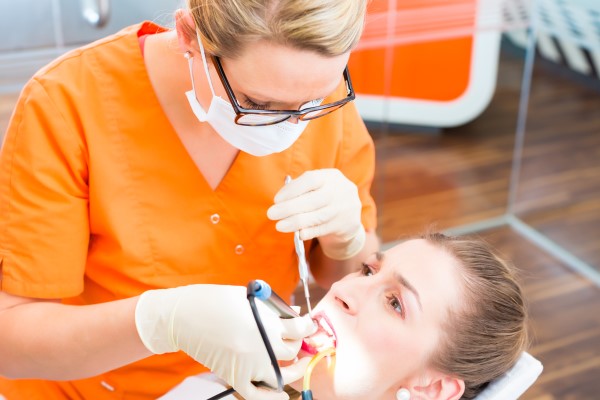Wondering if a dental cleaning helps prevent gum disease? Preventive dentistry, including routine dental cleanings, is essential to having a healthy mouth because it helps patients avoid cavities, enamel wear, and gum disease. Therefore, regular dental cleanings are crucial to a dental patient's oral health.
Avoiding gum disease
Signing up for a dental cleaning on a regular basis is something that every dental patient needs to do to support their oral health. Undergoing routine cleanings is necessary because professional dental cleanings help prevent gum disease. While it is necessary for dental patients to brush and floss their teeth regularly and properly, routine dental cleanings are also an essential part of a patient's healthy oral care routine.
Dental cleanings help prevent gum disease
Even dental patients who properly and regularly follow their oral health routine can still experience plaque buildup on their teeth. When plaque remains untreated for long periods, it turns into tartar. Tartar will build up on teeth both above and below the gum line. When this happens, dental patients will likely require a deep dental cleaning, also known as a root and planing and scaling procedure.
Plaque contains harmful bacteria, which means that when any plaque is present, it will damage a tooth if not removed. Plaque causes both tooth decay and gum disease, which means that if someone does not choose to undergo routine dental cleanings, they will start experiencing the early signs of gum disease, which includes but is not limited to red gums, swollen gums, sore gums, and bleeding gums. Later stages of gum disease can result in bone loss and tooth loss.
What happens during a dental cleaning
Routine dental cleanings often do not take long to perform and can provide dental patients with the gum care they need, so they do not get gum disease. During a professional dental cleaning, patients will first have any plaque or tartar buildup removed from the surfaces of their teeth. Once all the plaque and tartar have been removed, the dentist will then smooth out the teeth by polishing them. Lastly, some patients will undergo fluoride treatment to strengthen their teeth' enamel.
Bottom line
Are you currently in need of a dental cleaning? Now you know why professional dental cleanings are essential when it comes to preventing gum disease. A professional dental cleaning removes any plaque on one's teeth, allowing patients to experience oral health free of disease. Some patients only require dental cleanings once a year, while others must undergo them every three to six months. The longer people avoid regular dental cleanings, the higher chance of serious oral health issues occuring. There is no reason to avoid professional dental treatment.
Request an appointment here: https://drsykes.com or call Robert S. Sykes, DDS at (770) 873-7241 for an appointment in our Marietta office.
Check out what others are saying about our dental services on Yelp: Dental Cleaning and Examinations in Marietta, GA.
Related Posts
How To Care for Your Teeth Between Dental Cleanings
Dental cleanings are an essential part of maintaining good oral health. However, there are other actions patients can take to maintain a healthy smile in between these visits. Brushing and flossing are …
What to Expect During a Dental Cleaning
A regular dental cleaning is vital for maintaining optimal oral health. While many people understand the importance of these appointments, the specifics of what happens during dental cleanings may remain a bit …
How Often Should You Get a Teeth Cleaning?
Whether you are a person who loves to care for your teeth and gums or someone who has been neglectful due to various circumstances, routine teeth cleaning is essential to your oral …
Gum Therapy - What Happens in a Deep Teeth Cleaning?
A deep teeth cleaning is not just a procedure needed after skipping dental visits. Instead, a deep teeth cleaning is designed to help combat periodontal disease and gum recession, both of which …






